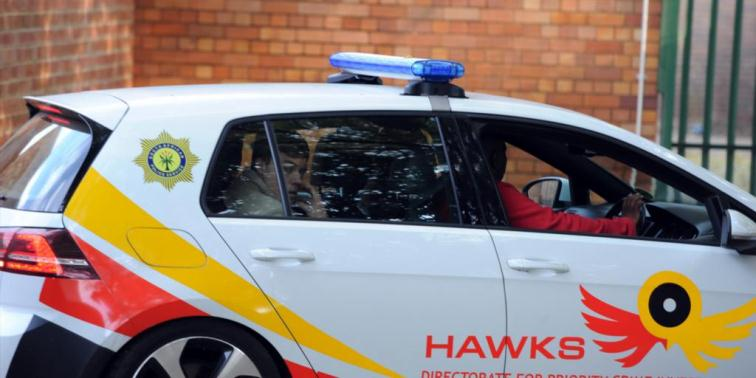In South Africa, the appointment of a new leader for the Hawks, officially known as the Directorate for Priority Crime Investigation, is a pivotal moment in the fight against serious crime. With the retirement of Lieutenant-General Godfrey Lebeya, who led the unit since 2018, the spotlight is now on Lieutenant-General Siphesihle Nkosi, the acting head. The appointment process, overseen by Minister of Police Senzo Mchunu, has seen delays as the initial call for applications was retracted to ensure that the most qualified candidate is chosen. This leadership transition comes at a critical time as South Africa grapples with high levels of organized crime, corruption, and financial offenses, necessitating strong and capable leadership within the Hawks to bolster its investigative efficacy.
The Hawks are essential in tackling complex criminal activities that often involve financial crimes and corruption, requiring specialized skills in investigation and law enforcement. Despite some operational successes reported under Lebeya’s tenure, which included arrests and seizures related to drug and firearm offenses, the unit faces significant challenges, particularly in acquiring the necessary resources and expertise for intricate investigations like money laundering. With over 50% of its positions unfilled due to budget constraints, the ability of the Hawks to effectively prosecute cases remains hindered. The recent frustrations voiced by Ian Cameron regarding delays in investigations highlight the urgency for the new leader to address organizational inefficiencies and inspire confidence in the unit’s capabilities.
In an environment where the Hawks’ credibility is intertwined with South Africa’s broader struggle against corruption and crime, the next head must not only drive the investigation of current criminal networks but also work to restore trust in the agency. Historical issues, including the influence of political leadership over appointments, have eroded the unit’s independence, raising questions about its future role. As discussions continue about establishing alternative mechanisms for tackling corruption, the task at hand is to revitalize the Hawks and ensure it operates as a robust, skilled force equipped to confront the realities of organized crime in the modern era. The new leader’s vision should include fostering a merit-based culture and aligning the Hawks’ operations with the intelligence-driven approaches necessary to combat crime effectively in the 21st century.
The Search for Effective Leadership
The appointment of a new head for the Hawks, officially the Directorate for Priority Crime Investigation, is vital for strengthening South Africa’s approach to tackling serious crime. With the retirement of Lieutenant-General Godfrey Lebeya on May 30, Hawks Deputy Head Lieutenant-General Siphesihle Nkosi currently serves as Acting Head. The Minister of Police, Senzo Mchunu, has indicated that this process may take longer than expected, having retracted the initial advertisement for applications to secure the best candidate.
As crime rates soar, the leadership choice is crucial for the Hawks to enhance its operational effectiveness. With high levels of organized and financial crime in South Africa, observers are scrutinizing the selection process closely. “We need someone who can reinvigorate the Hawks and restore public trust,” said Ian Cameron, Chair of the Parliamentary Portfolio Committee on Police, highlighting the dire need for rapid action.
Challenges that lie ahead for the new leader include bridging capability gaps in complex investigative operations, notably in financial crime and anti-corruption efforts. The Hawks have faced criticisms for a skills shortage and excessive vacancy rates, which have left them ill-equipped to respond to sophisticated criminal networks. An efficient leader must address these fundamental issues to strengthen the team’s efficacy.
Navigating a Complex History
The Hawks’ complicated history is marked by allegations of political interference and operational challenges, particularly during former President Jacob Zuma’s administration. Critics argue that senior appointments have often been influenced by political interests rather than a commitment to justice. A pivotal Constitutional Court ruling in 2014 emphasized the need for a robust independent anti-corruption body, a mandate the Hawks must fulfill moving forward.
Legal frameworks surrounding the Hawks’ operations remain contentious. Numerous stakeholders have called for reforms to ensure that the selection process for leadership roles is merit-based and transparent. As stated by a legal expert, “Without a clear and unrestricted path for qualified individuals to lead, the Hawks remain vulnerable to institutional weaknesses that can compromise their mission.” Enhancing independence is crucial for restoring the agency’s credibility.
While there are discussions in Parliament regarding alternative structures to investigate corruption, the responsibility of the Hawks must be clearly defined. The urgent need for strategic centers focused on combating organized crime, including money laundering and cyber-crime, underscores the potential for a renewed Hawks under a competent leader. Moving forward, public expectations remain high for tangible improvements in justice and accountability.
Summary
South Africa’s Hawks, a specialized police unit tasked with combating serious crime, is in a crucial phase as it seeks to appoint a new leader following the retirement of Lieutenant-General Godfrey Lebeya, who had served since 2018. The Minister of Police, Senzo Mchunu, has extended the application process to ensure the selection of the best candidate, emphasizing the importance of strong leadership in enhancing the unit’s effectiveness against organized crime and corruption. Despite recent successes in arrests and seizures, the Hawks face significant challenges, including skill shortages, understaffing with a vacancy rate above 50%, and a history of leadership manipulation, particularly during the state capture era. Analysts stress the need for a new head to foster public trust, undertake rigorous investigations, and develop the unit into a leading agency capable of addressing modern, complex crimes through a robust and independent strategic approach.



More Stories
Heartbreak in Limpopo: Scholar Transport Tragedy Claims Life of Seven-Year-Old
Limpopo fomer Radio Presenter Lerato Queen Selotole Killed in Alleged Gender-Based Violence Incident
Six Suspects in R250 Million Rhino Horn Trafficking Syndicate Granted Bail